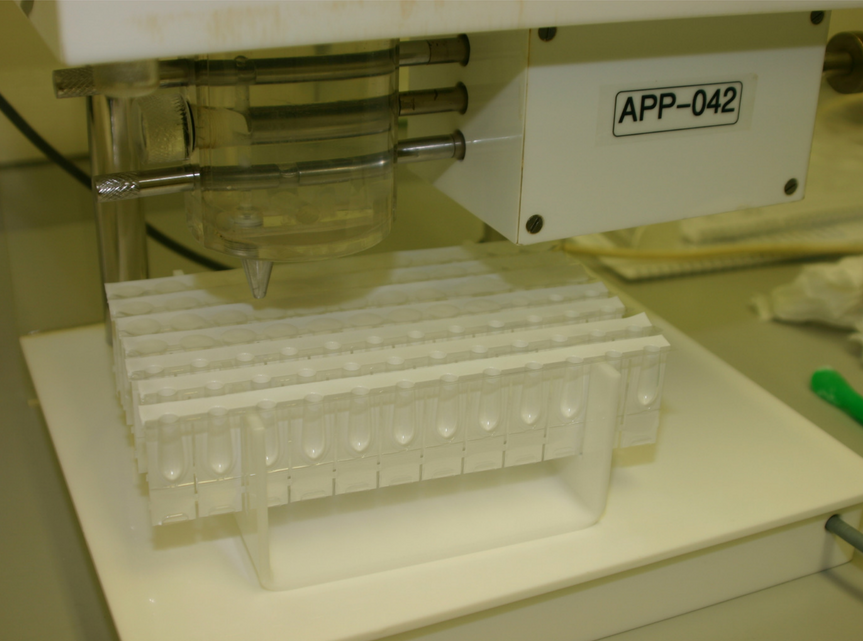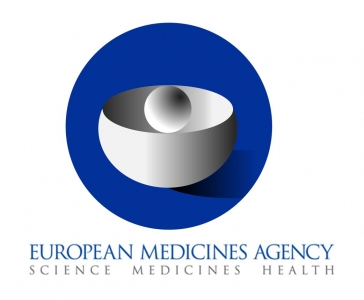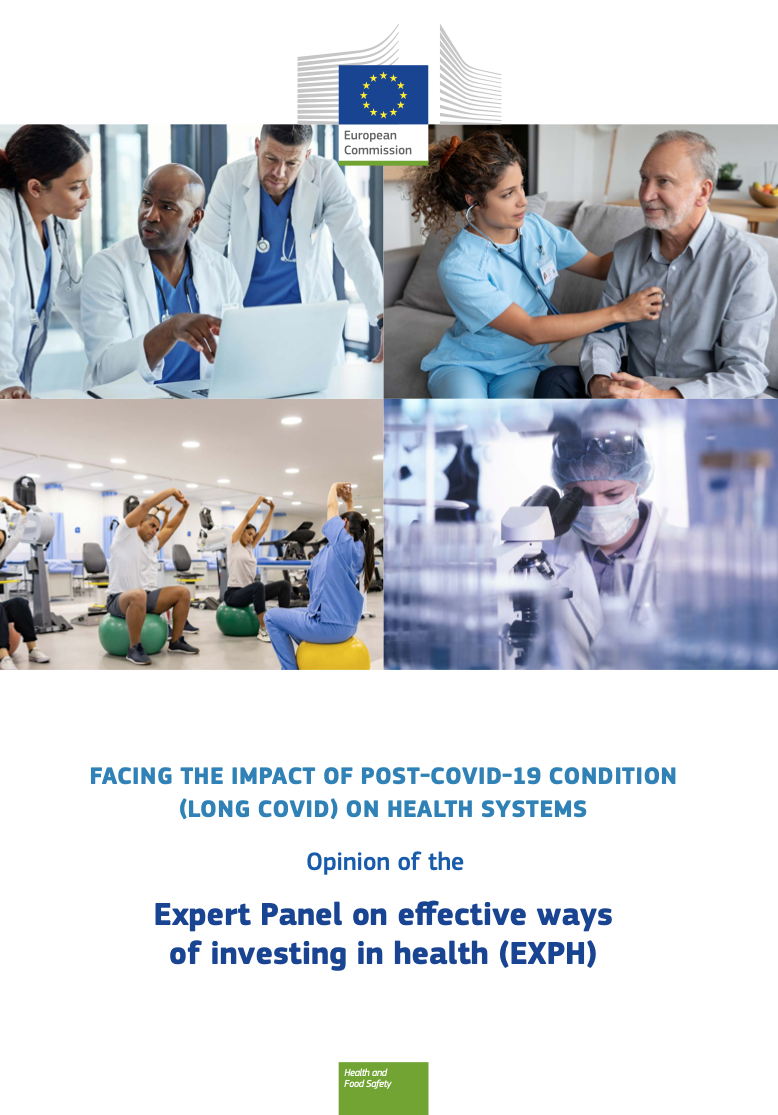12 January 2023 - Last days to contribute to the “Investigation of the hospital pharmacy profession in Europe”
The EAHP EU Monitor is a regular round up of news relevant to hospital pharmacy in Europe.
Contribute to the Investigation of the hospital pharmacy profession by 16 January!
 Through its membership, the European Association of Hospital Pharmacists (EAHP) has reached out to chief pharmacists, directors of pharmacy and managers of the pharmacy in each hospital across Europe to obtain their feedback on the state of play of the profession. Until the 16th of January 2023, each European hospital pharmacy can contribute to the "Investigation of the hospital pharmacy profession in Europe – Assess and advance hospital pharmacy!".
Through its membership, the European Association of Hospital Pharmacists (EAHP) has reached out to chief pharmacists, directors of pharmacy and managers of the pharmacy in each hospital across Europe to obtain their feedback on the state of play of the profession. Until the 16th of January 2023, each European hospital pharmacy can contribute to the "Investigation of the hospital pharmacy profession in Europe – Assess and advance hospital pharmacy!".
The investigation touches on the state-of-the art of the profession and specifically on the European Statements of Hospital Pharmacy. Chief pharmacists, directors of the pharmacy and managers of the pharmacy are encouraged to participate, but they can also delegate the provision of feedback to another pharmacist in their hospital pharmacy. Only one response per hospital pharmacy is needed.
Sharing your feedback on the investigation should take approximately 45 minutes. The full set of questions is available in PDF format on EAHP's website.
Access the questions HERE
Participate in the Investigation HERE
European Commission taking action to mitigate risks of device shortages
 On the 6th of January 2023, the European Commission shared a proposal to give more time to certify medical devices to mitigate the risk of shortages. The proposal introduces a longer transition period to adapt to new rules, as foreseen under the Medical Devices Regulation.
On the 6th of January 2023, the European Commission shared a proposal to give more time to certify medical devices to mitigate the risk of shortages. The proposal introduces a longer transition period to adapt to new rules, as foreseen under the Medical Devices Regulation.
The new deadlines depend on the medical devices' risk class and will ensure continued access to medical devices for patients. It will also allow medical devices placed on the market in accordance with the current legal framework and that are still available to remain on the market (i.e., no sell-off' date). The availability of safe medical devices for European patients is our priority. This proposal does not change any of the current safety and performance requirements provided for in the Medical Devices Regulation. It only amends the transitional provisions to give more time for manufacturers to transition from the previously applicable rules to the new requirements of the Regulation. The length of the proposed extension of the transition periods depends on the type of device: higher risk devices such as pacemakers and hip implants will benefit from a shorter transition period (until December 2027) than medium and lower risk ones, such as syringes or reusable surgical instruments (until December 2028).
Learn more about the proposal HERE
Updates from the European Medicines Agency
 The European Medicines Agency (EMA) published new communications on facilitating decentralised clinical trials in the EU and the first gene therapy to treat haemophilia B.
The European Medicines Agency (EMA) published new communications on facilitating decentralised clinical trials in the EU and the first gene therapy to treat haemophilia B.
Facilitating Decentralised Clinical Trials in the EU
The European Commission, the Heads of Medicines Agencies HMA and EMA have published recommendations that aim to facilitate the conduct of decentralised clinical trials (DCTs) while safeguarding the rights and well-being of participants as well as the robustness and reliability of the data collected. This is an outcome of their joint initiative to Accelerate Clinical Trials in the European Union (ACT EU).
Traditionally, clinical trials have been conducted at specific clinical trial sites, to which patients had to travel to. The aim of DCTs is to make it easier for patients to participate in clinical trials by reducing the need to travel to central trial sites. This approach has the potential to make clinical trials available to a wider demographic of participants and reduce drop-out rates.
Decentralisation is enabled by the advancement of digital tools, telemedicine and more mobile and local healthcare. It includes aspects such as home health visits, remote monitoring and diagnostics, direct-to-patient shipment of study drugs and electronic informed consent.
The recommendations include an overview of national provisions for specific decentralised clinical trial elements to be used in clinical trials. They were put together by the European medicines regulatory network with experts from regulatory bodies responsible for the authorisation of clinical trials, members of ethic committees, good clinical practice inspectors, methodology experts and representatives of patient organisations. Drafting of the paper was coordinated by the clinical trials coordination group (CTCG).
These recommendations under ACT EU are a first and important step towards clarifying the use of decentralised clinical trials in the EU/EEA by the European medicines regulatory network.
They are expected to evolve as knowledge increases and experience is gained. In particular, the overview of national provisions will be updated on a continuous basis.
More information is available HERE.
First gene therapy to treat haemophilia B
EMA has recommended granting a conditional marketing authorisation in the European Union (EU) for Hemgenix (etranacogene dezaparvovec) for the treatment of severe and moderately severe haemophilia B in adults who do not have factor IX inhibitors (auto-antibodies produced by the immune system which make factor IX medicines less effective).
Haemophilia B is an inherited disorder characterised by an increased bleeding tendency due to a partial or complete deficiency of coagulation factor IX, a protein needed to produce blood clots to stop bleeding. The deficiency of factor IX is the result of mutations of the respective clotting factor gene. Prolonged bleeding episodes in patients with haemophilia B can lead to serious complications, such as bleeding into joints, muscles or internal organs, including the brain. Haemophilia B is a rare debilitating disease affecting approximately 1 in 20,000 to 50,000 live male newborns.
Medicines currently authorised to treat haemophilia B aim to prevent bleeding episodes or to treat bleeding episodes that may occur during surgery or in emergencies even when patients are on regular therapy. Patients require a lifelong routine treatment regimen of intravenous infusions of factor IX replacement products to maintain sufficient factor IX levels. Therefore, there is an unmet medical need for new therapeutic approaches that might free patients from the burden of frequent infusions, or episodically at the time of a bleeding event.
Hemgenix is the first gene therapy to treat haemophilia B. It is delivered as a single infusion. Etranacogene dezaparvovec, the active substance in Hemgenix, is based on a virus (adeno-associated virus or AAV) which has been modified to not cause disease in humans. The virus contains copies of the gene responsible for producing factor IX. When injected into the patient's vein, the virus is carried to the liver where the gene will be taken up into the patient's liver cells and start producing factor IX, thereby limiting bleeding episodes.
EMA's recommendation is based on the results of two prospective, open-label, single‑dose, single-arm studies, in which 57 adult male patients with moderately severe or severe haemophilia B were enrolled. In the first study, the three patients sustained positive treatment effects up to three years following the infusion. In the second study, 52 patients sustained positive treatment effects up to two years following the infusion. It is yet unknown how long the benefits of this one-time treatment will last.
Efficacy data show that the treatment significantly reduces the frequency of bleeding compared to standard care (annualised bleeding rate reduced from 4.19 to 1.51 bleedings per year after the infusion), achieves clinically relevant levels of factor IX activity, and minimises the need for prophylactic factor IX replacement therapy (96 % of subjects treated with Hemgenix discontinued use of routine prophylaxis).
The majority of reported adverse events were considered mild. Hepatotoxicity (liver damage), a common side effect due to immune reaction induced by these AAV-based gene therapies and characterised by an increase in the levels of liver enzymes called transaminases, has been reported with Hemgenix. The condition can be treated successfully with corticosteroids. Patients should also be monitored for infusion-related reactions. Other common side effects include headache and flu-like symptoms.
Patients treated with Hemgenix will be followed up for 15 years, to monitor the long-term efficacy and safety of this gene therapy.
Hemgenix was supported through EMA's PRIority MEdicines (PRIME) scheme, which provides early and enhanced scientific and regulatory support to medicines that have a particular potential to address patients' unmet medical needs.
In its overall assessment of the available data, the Committee for Advanced Therapies (CAT), EMA's expert committee for cell- and gene-based medicines, found that the benefits of Hemgenix outweighed the possible risks in patients with haemophilia B. The CHMP, EMA's human medicines committee, agreed with the CAT's assessment and positive opinion, and recommended approval of this medicine.
The opinion adopted by the CHMP is an intermediary step on Hemgenix's path to patient access. The opinion will now be sent to the European Commission for the adoption of a decision on an EU-wide marketing authorisation. Once a marketing authorisation has been granted, decisions about price and reimbursement will take place at the level of each Member State, taking into account the potential role or use of this medicine in the context of the national health system of that country.
More information is available HERE.
Cancer Screening Council Recommendations
 On 9 December 2022, the Council proposed a new recommendation on cancer screening to bring down the mortality of cancer and cut the incidence of invasive cancers. This recommendation expands the scope for cancer screening since its predecessor dating from 2003 was limited to breast, cervical and colorectal cancer.
On 9 December 2022, the Council proposed a new recommendation on cancer screening to bring down the mortality of cancer and cut the incidence of invasive cancers. This recommendation expands the scope for cancer screening since its predecessor dating from 2003 was limited to breast, cervical and colorectal cancer.
The new approach to cancer screening, now also extends towards lung, prostate and gastric cancer and contains updated recommendations for breast, cervical and colorectal cancer. For lung cancer countries are asked to explore the feasibility and effectiveness of screening with the use of low-dose computed tomography. Special attention should be given to the identification and targeting of high risk profiles. Taking into account the current state of knowledge and the amount of opportunistic screening, countries should evaluate the feasibility and effectiveness of the implementation of organised programmes for prostate cancer. Countries and regions with high gastric incidence and death rates are encouraged to consider cancer screening strategies. For cervical cancer, it is recommended to consider adapting ages and intervals to individual risk based on the human papilloma virus vaccination history of the individuals. While for breast cancer, the age limit for screening should be adjusted.
All these measures on screening should go hand in hand with adequate, timely and complementary diagnostic procedures and treatments for those individuals with a positive screening test. On the basis of information provided by member states, the European Commission is asked to report on the implementation of cancer screening programmes, not later than the end of the fourth year after the date of adoption of this recommendation.
Read the recommendation HERE
Expert Panel opinion on the impact of the post-COVID-19 condition (long COVID) on health systems
 In December, the European Commission published an opinion by the independent Expert Panel on effective ways of investing in health on the impact of the post-COVID-19 (long COVID) condition on health systems. The recommendations of the Expert Panel put an emphasis on research, including patient involvement, potential treatments, and the need to embed research on long COVID at all levels of care, including rehabilitation.
In December, the European Commission published an opinion by the independent Expert Panel on effective ways of investing in health on the impact of the post-COVID-19 (long COVID) condition on health systems. The recommendations of the Expert Panel put an emphasis on research, including patient involvement, potential treatments, and the need to embed research on long COVID at all levels of care, including rehabilitation.
Other recommendations call for continued efforts to reduce the transmission of COVID-19 (e.g. through vaccination), investment in primary care, specialised training and establishment of surveillance systems to track the epidemiology of long COVID. Organisational and resource requirements for healthcare systems to design and develop appropriate health services for long COVID are discussed with a focus on implications for the health workforce, preventing long COVID among essential workers and supporting health workers with long COVID. The opinion considers models of care for patients with long COVID, including service delivery, health workforce, health information systems, access to essential medicines, financing, leadership and governance.
The opinion is based on a review of the available evidence on what long COVID is and its probable causes and symptoms. As knowledge on long COVID is evolving, the expert panel highlights some of the key characteristics and issues that still need better understanding. The Expert Panel on effective ways of investing in health is an interdisciplinary and independent group established by the European Commission to provide non-binding independent advice on matters related to effective, accessible and resilient health systems.
Read the opinion and the fact sheet HERE
The EJHP January issue is available!
 The January issue of the European Journal of Hospital Pharmacy (EJHP) is out and with it an editorial on hospital pharmaceutical expenditure. The newest edition of the EJHP includes a systematic review, a case report and EAHP's Position Paper on the Hospital Pharmacy Specialisation. With the help of the original research articles, you can learn more about automatic dispensing cabinets and governance of controlled drugs, optimising the pharmaceutical analysis of radiopharmaceutical pediatric prescriptions, the biological therapy for ocular Behçet's disease with off-label drug prescription in Turkey and the assessment of adherence to statin therapy in patients with coronary artery disease.
The January issue of the European Journal of Hospital Pharmacy (EJHP) is out and with it an editorial on hospital pharmaceutical expenditure. The newest edition of the EJHP includes a systematic review, a case report and EAHP's Position Paper on the Hospital Pharmacy Specialisation. With the help of the original research articles, you can learn more about automatic dispensing cabinets and governance of controlled drugs, optimising the pharmaceutical analysis of radiopharmaceutical pediatric prescriptions, the biological therapy for ocular Behçet's disease with off-label drug prescription in Turkey and the assessment of adherence to statin therapy in patients with coronary artery disease.
Read the January edition of the EJHP HERE
[Consultations]
European Paediatric Formulary: Chloral Hydrate Oral Solution monograph
The European Directorate for the Quality of Medicines & HealthCare (EDQM) released Issue 5 of Pharmeuropa PaedForm, in which the draft text for Chloral hydrate 100 mg/mL Oral Solution is published for public consultation prior to its inclusion in the European Paediatric Formulary. The deadline for comments on the text in Pharmeuropa PaedForm is 31 March 2023. This is the sixth monograph elaborated on by the PaedF Working Party. The EDQM welcomes all comments on this new monograph from users and interested parties.
Learn more about this consultation HERE




